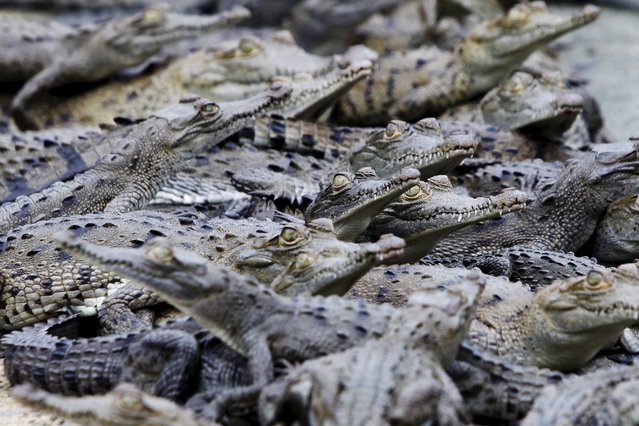
Young acutus crocodile are pictured at Panagator, a sustainable crocodile farm, on the outskirts of Panama City September 11, 2015. Gladys Vallarino, owner of the farm and of a specialty boutique shop selling items made from crocodiles, says the farm looks after more than 19,000 Acutus and Fuscus species of crocodiles and donates five percent of its crocodiles annually to the Panamanian authorities to be put into the wild, in accordance with the regulations of the CITES (Convention of International Trade in Endangered Species). The handmade fashion items sell for $200 to $3,000. (Photo by Carlos Jasso/Reuters)
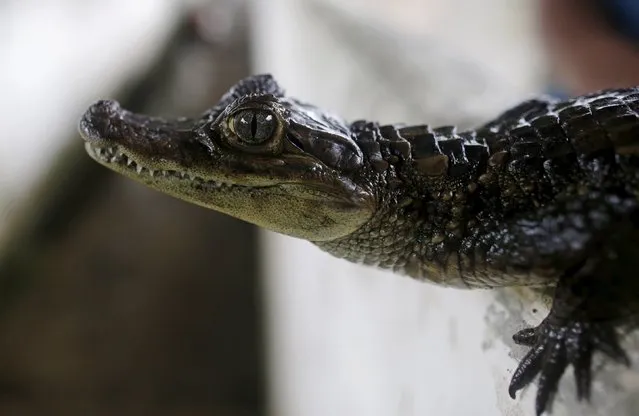
A baby fuscus crocodile is pictured at Panagator, a sustainable crocodile farm, on the outskirts of Panama City September 11, 2015. (Photo by Carlos Jasso/Reuters)
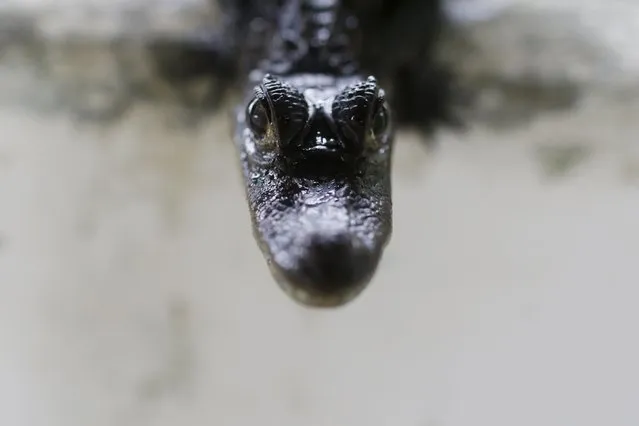
A baby fuscus crocodile is pictured at Panagator, a sustainable crocodile farm, on the outskirts of Panama City September 11, 2015. (Photo by Carlos Jasso/Reuters)
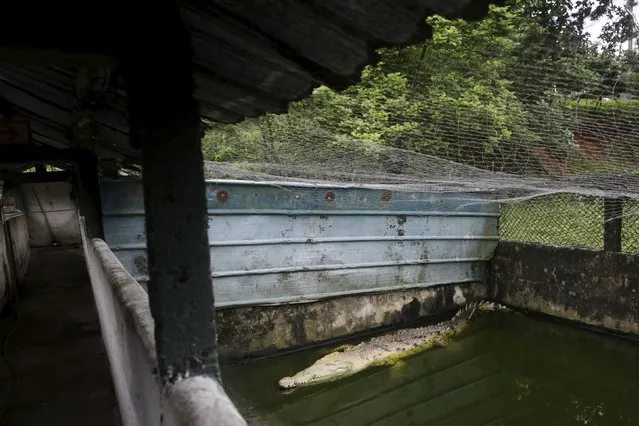
An Acutus crocodile is pictured at Panagator, a sustainable crocodile farm, on the outskirts of Panama City September 11, 2015. (Photo by Carlos Jasso/Reuters)
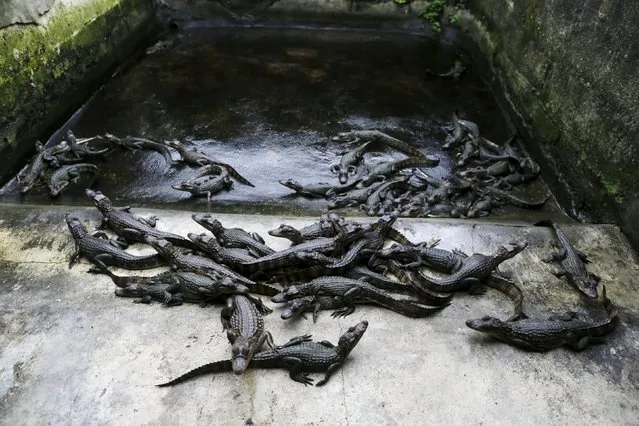
Young acutus crocodiles are pictured at Panagator, a sustainable crocodile farm, on the outskirts of Panama City September 11, 2015. (Photo by Carlos Jasso/Reuters)
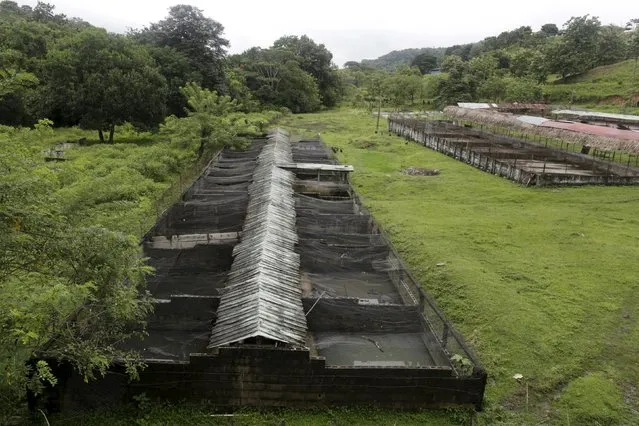
A general view of Panagator, a sustainable crocodile farm, is seen on the outskirts of Panama City September 11, 2015. (Photo by Carlos Jasso/Reuters)
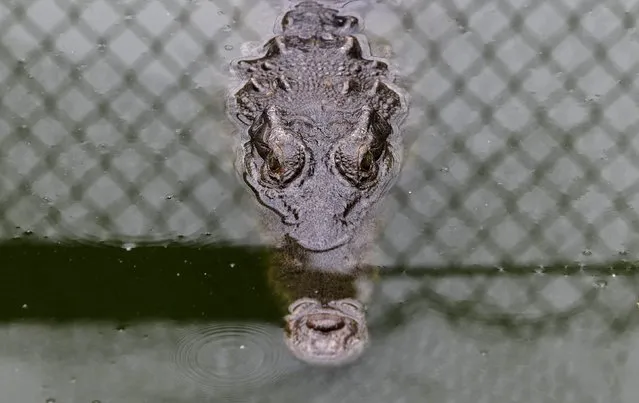
An Acutus crocodile is pictured at Panagator, a sustainable crocodile farm, on the outskirts of Panama City September 11, 2015. (Photo by Carlos Jasso/Reuters)
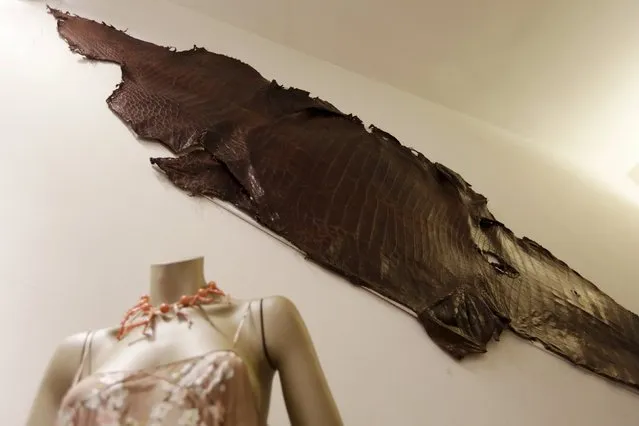
A piece of crocodile skin is hung in a boutique shop in Panama City September 8, 2015. (Photo by Carlos Jasso/Reuters)
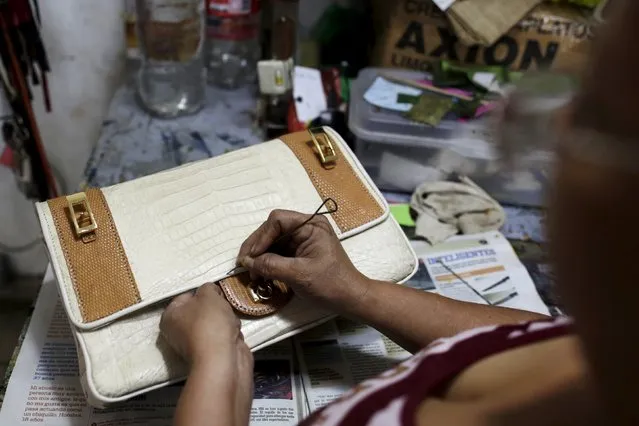
A woman works on a handbag made from crocodile skin, inside a sewing workshop at Panagator, a sustainable crocodile farm, on the outskirts of Panama City September 11, 2015. (Photo by Carlos Jasso/Reuters)
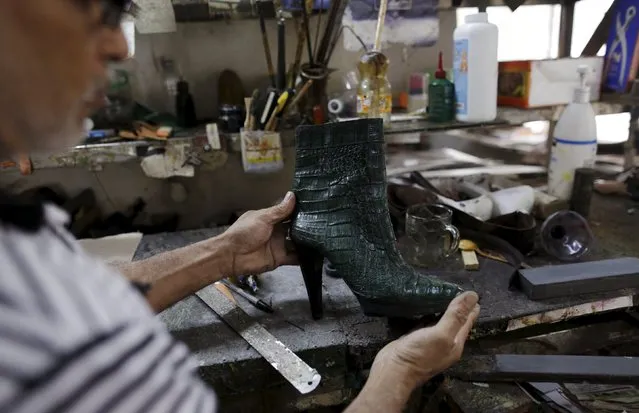
A man holds a boot made from crocodile skin, inside a sewing workshop at Panagator, a sustainable crocodile farm, on the outskirts of Panama City September 11, 2015. (Photo by Carlos Jasso/Reuters)
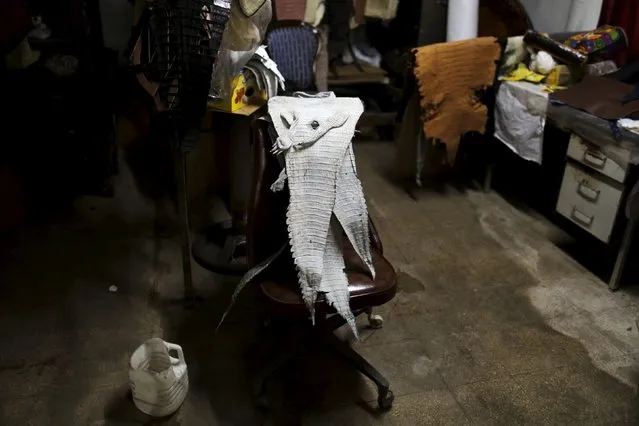
Crocodile skin waits to be used at a sewing workshop in Panagator, a sustainable crocodile farm, on the outskirts of Panama City September 11, 2015. (Photo by Carlos Jasso/Reuters)
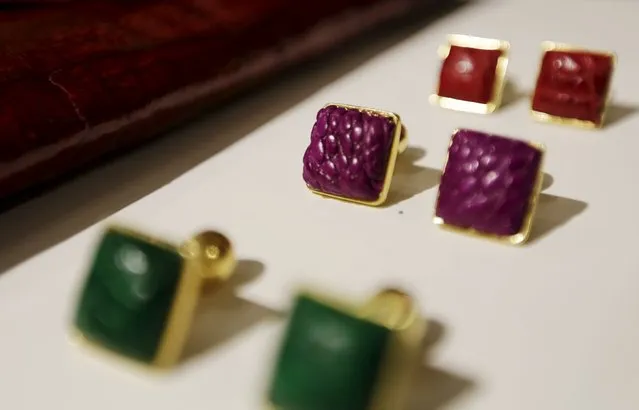
Cufflinks made from crocodile skin are seen at a boutique shop in Panama City September 8, 2015. (Photo by Carlos Jasso/Reuters)
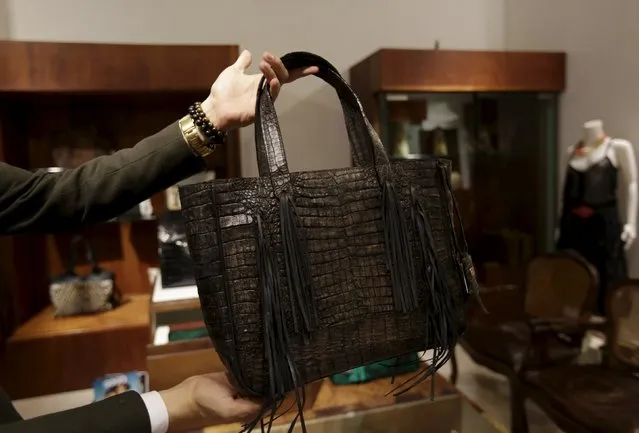
A man displays a handbag made from crocodile skin at a boutique shop in Panama City September 8, 2015. (Photo by Carlos Jasso/Reuters)
13 Sep 2015 13:00:00,
post received
0 comments
